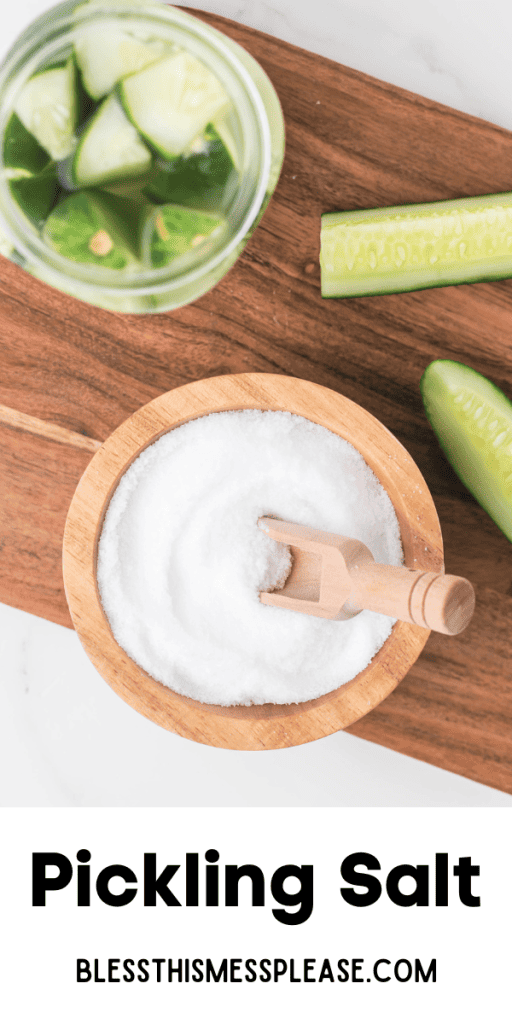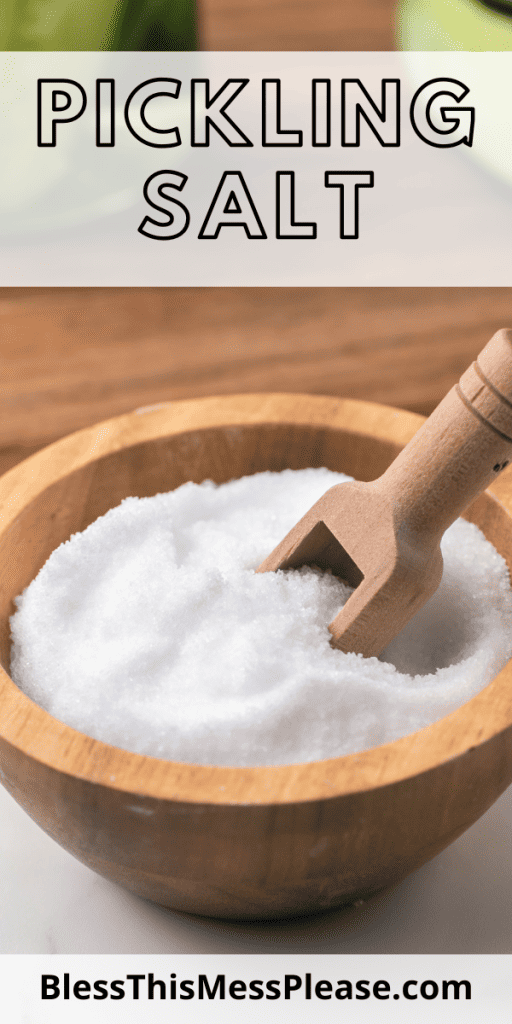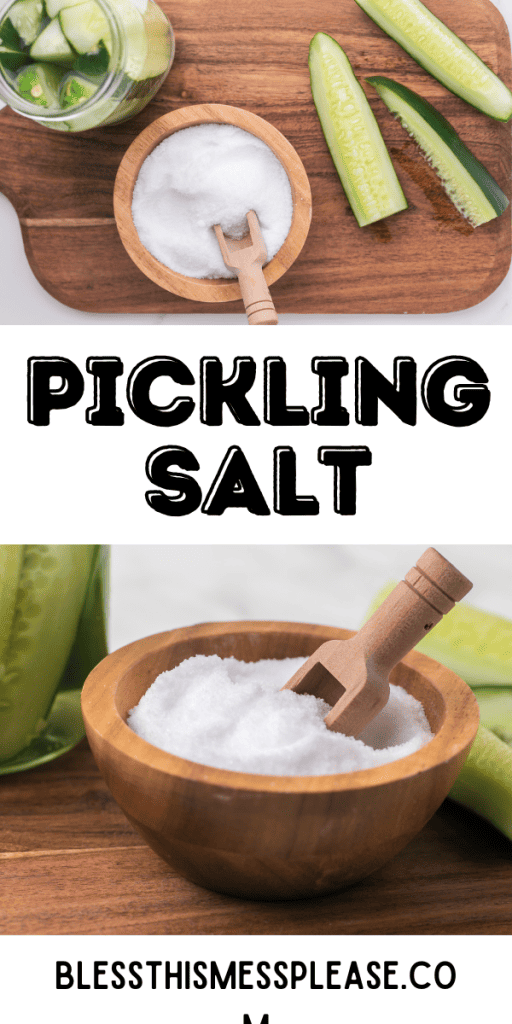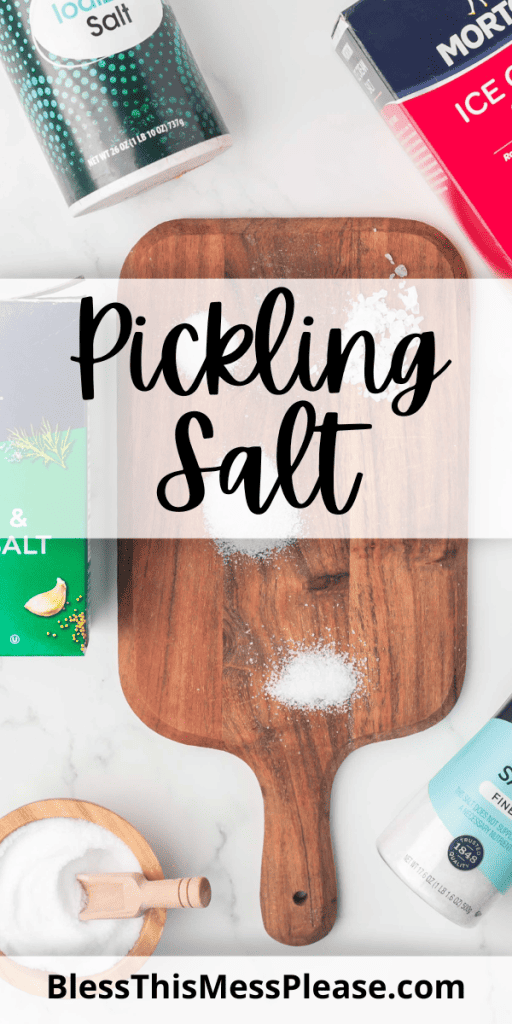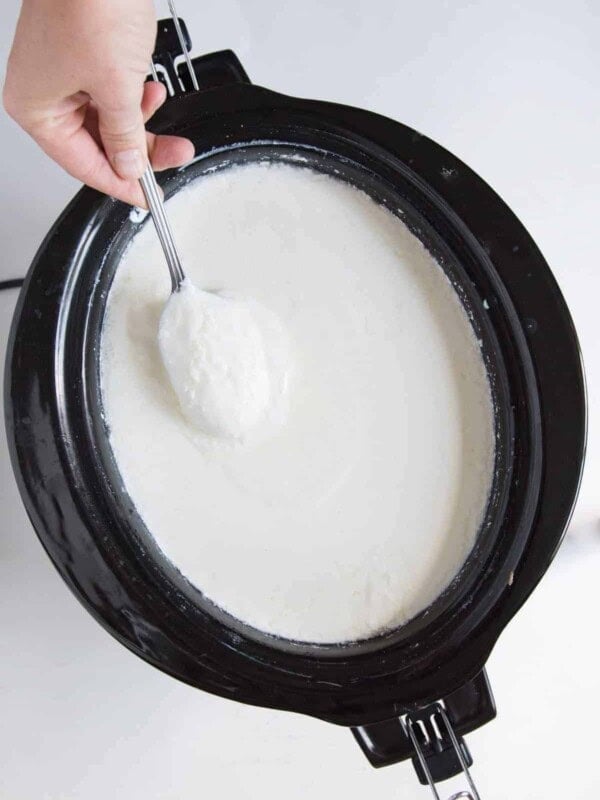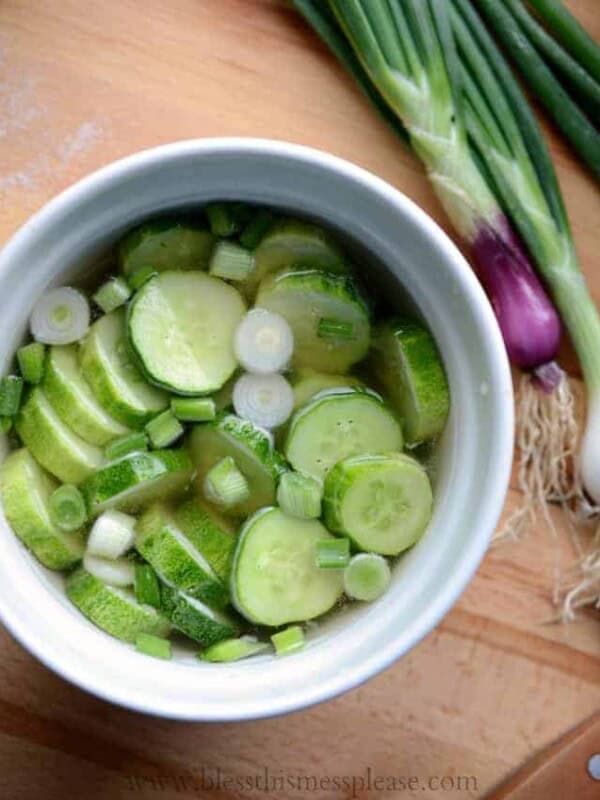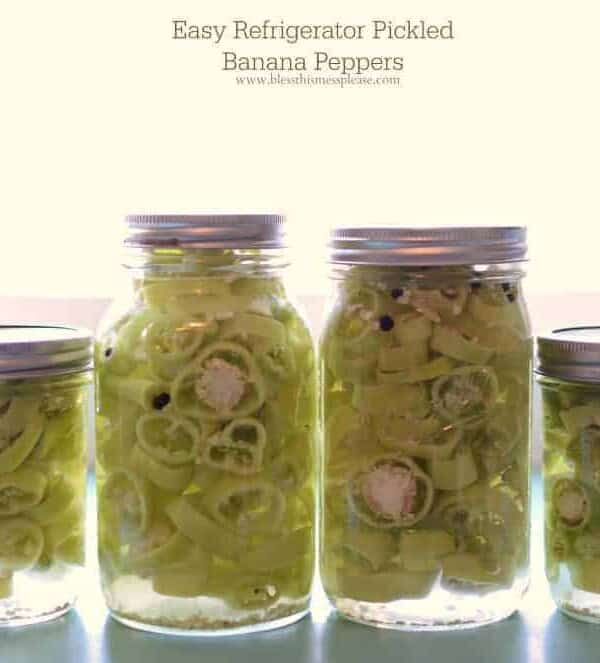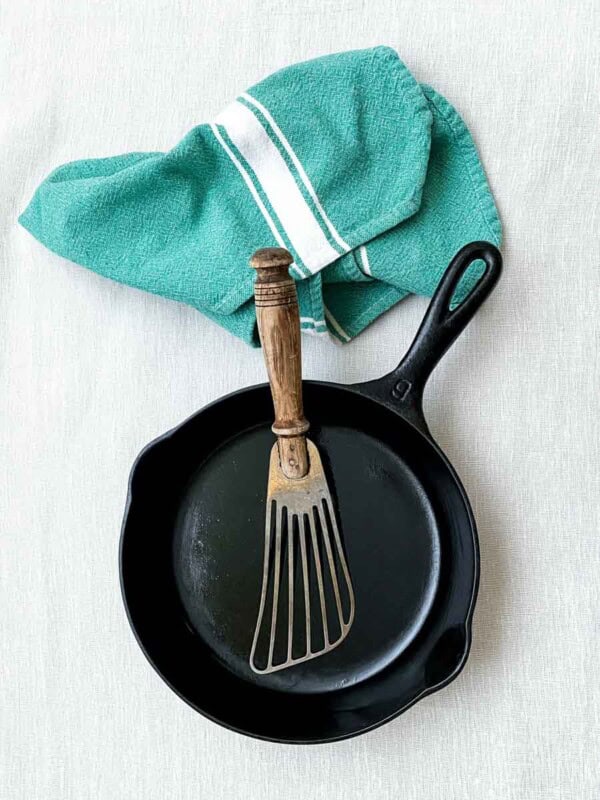Pickling Salt
on Dec 08, 2023, Updated Mar 14, 2024
This post may contain affiliate links. Please read our disclosure policy.
Salt plays a crucial role in pickling, but the type of salt used can significantly impact the outcome. Many recipes specify pickling salt, a unique variety known for its specific characteristics. So, what sets pickling salt apart, and is it possible to replace it with a different kind of salt? Understanding these details is essential in the pickling process.
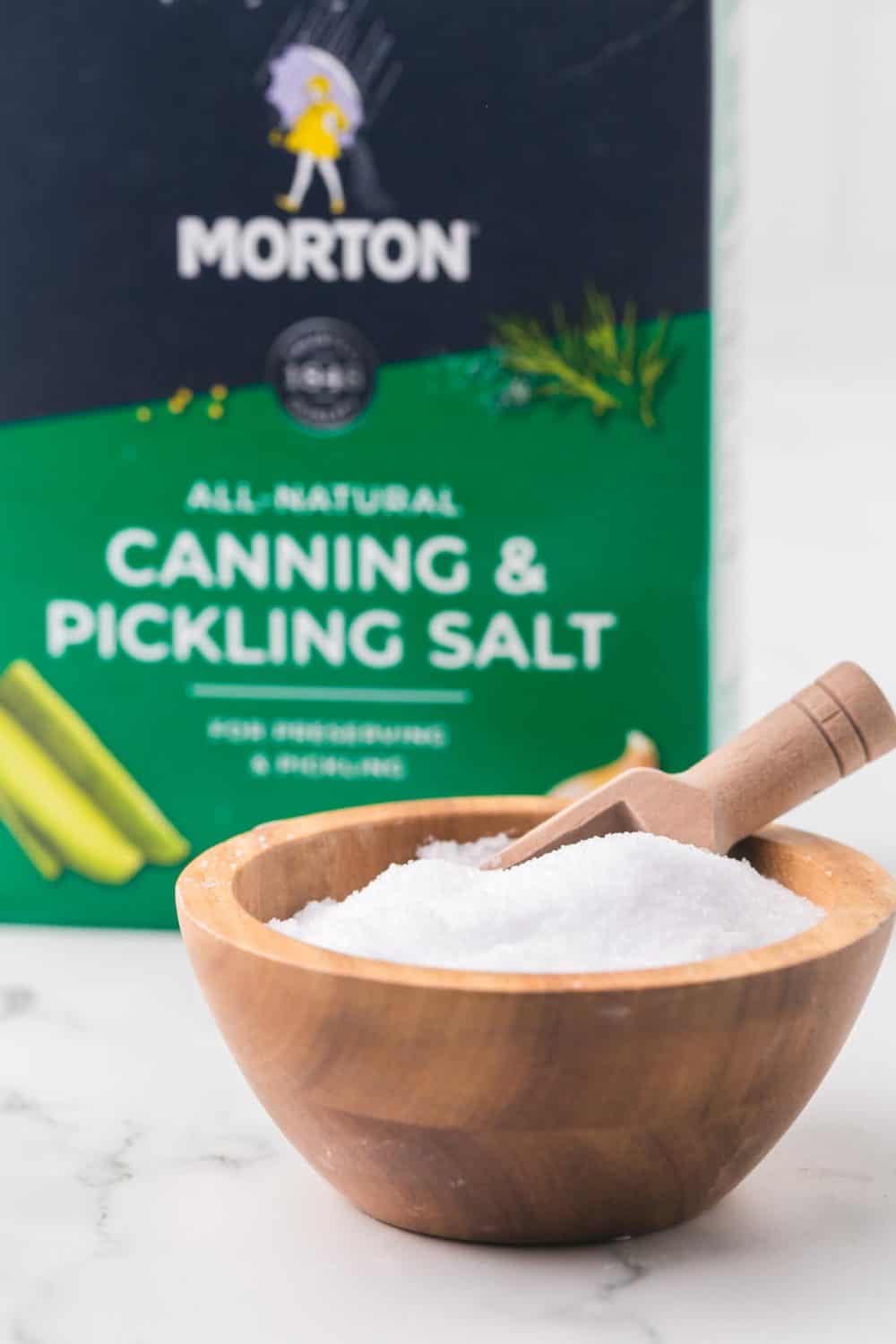
Whether you’re aiming to create the crunchiest dill pickles, vibrant pickled red onions, or fiery pickle peppers, pickling salt is your secret ingredient. Its fine, uniform grains ensure your pickling solution is just right, every time.
Pickling salt, a key ingredient in the art of preserving foods, stands out for its fine-grained, pure composition, designed specifically to enhance the pickling process.
Table of Contents
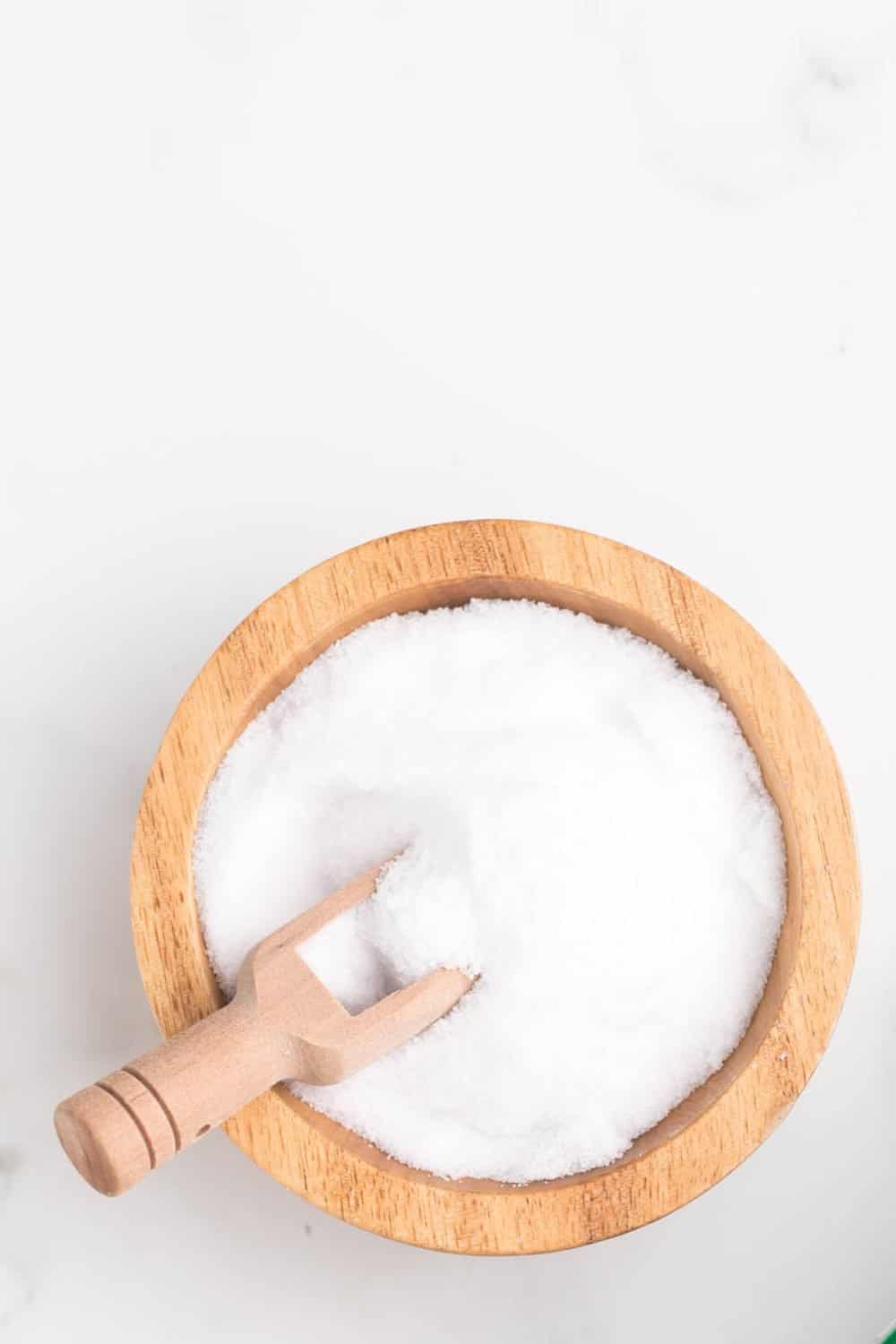
The Pickling Salt Difference
Compared to its more common counterparts like sea salt, iodized salt, and even ice cream salt, pickling salt is a unique seasoning powerhouse. But what sets it apart?
Size Matters
Pickling salt is known for its fine, uniform grains. This consistency allows it to dissolve quickly and evenly in pickling solutions. Unlike coarse sea salt or the impurities found in some table salts, pickling salt won’t cloud your pickling brine.
No Additives
Unlike iodized salt, which contains added iodine, and some table salts that incorporate anti-caking agents, pickling salt remains pure. Its chemical purity ensures it won’t introduce any unwanted flavors or colors to your pickled creations.
Dissolvability
Pickling salt’s fine grains dissolve readily in liquid, making it the ideal choice for pickling solutions. This rapid dissolution facilitates uniform distribution of salt and spices, guaranteeing that every bite of your pickles or pickled peppers is perfectly seasoned.
Versatile Uses
While its name suggests a one-track purpose, pickling salt offers versatility beyond pickling. It can be used as a general seasoning, just like table salt, in recipes where its rapid dissolving qualities are an advantage.
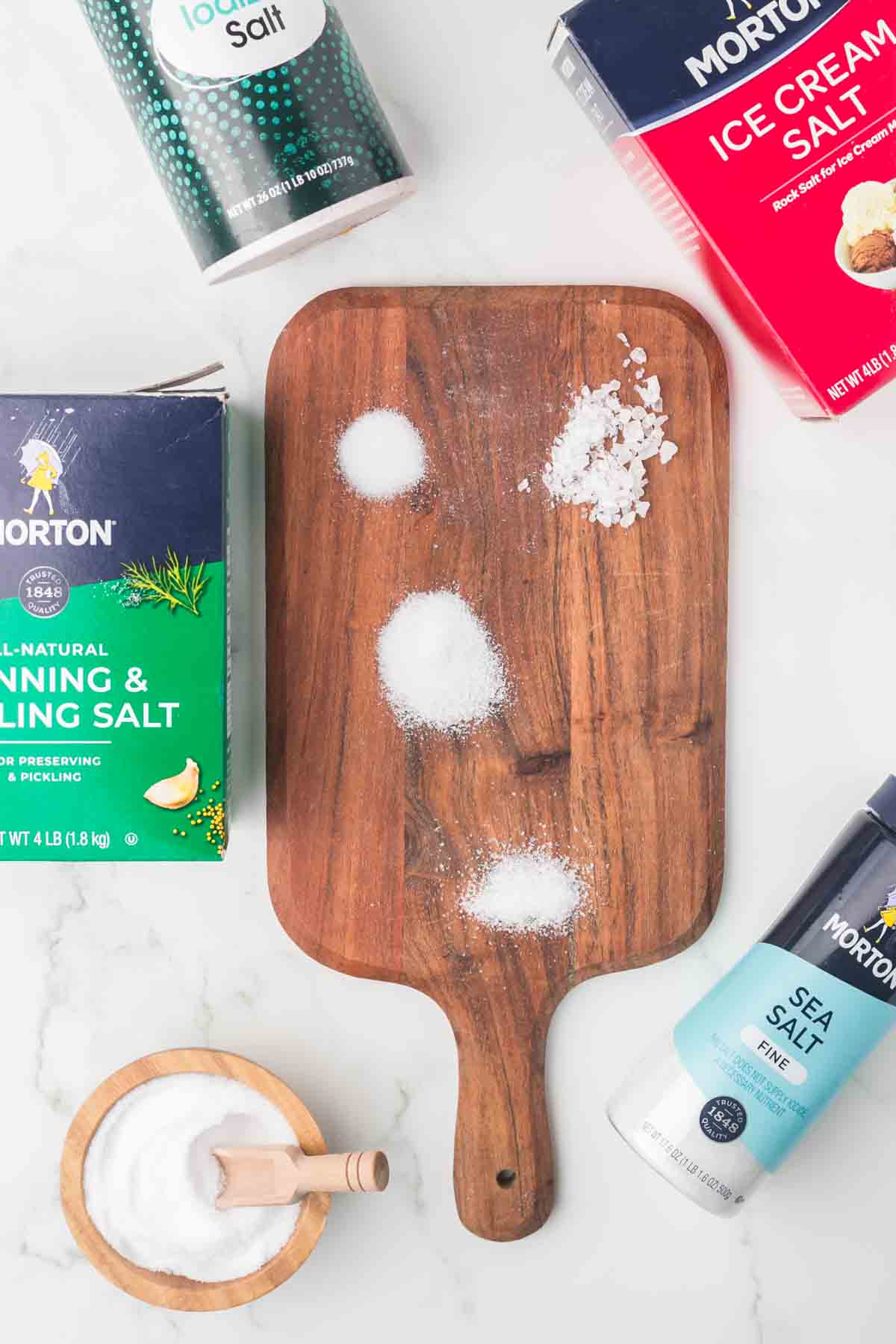
Size Matters: Comparing Sizes
When it comes to sizes, pickling salt reigns supreme in the world of pickling. Its fine grains ensure a seamless blend with pickling liquids. In contrast, sea salt’s coarse grains can create uneven salting, and table salt may introduce impurities.
Pickling Salt Sizes:
• Fine and uniform grains
• Dissolves quickly and evenly
• Ideal for pickling solutions
Sea Salt Sizes:
• Coarse and irregular grains
• Slower dissolution, may result in uneven seasoning
• Best for adding a burst of texture and flavor to dishes
Table Salt Sizes:
• Fine grains with additives
• Dissolves quickly but may introduce impurities
• Suitable for general seasoning purposes
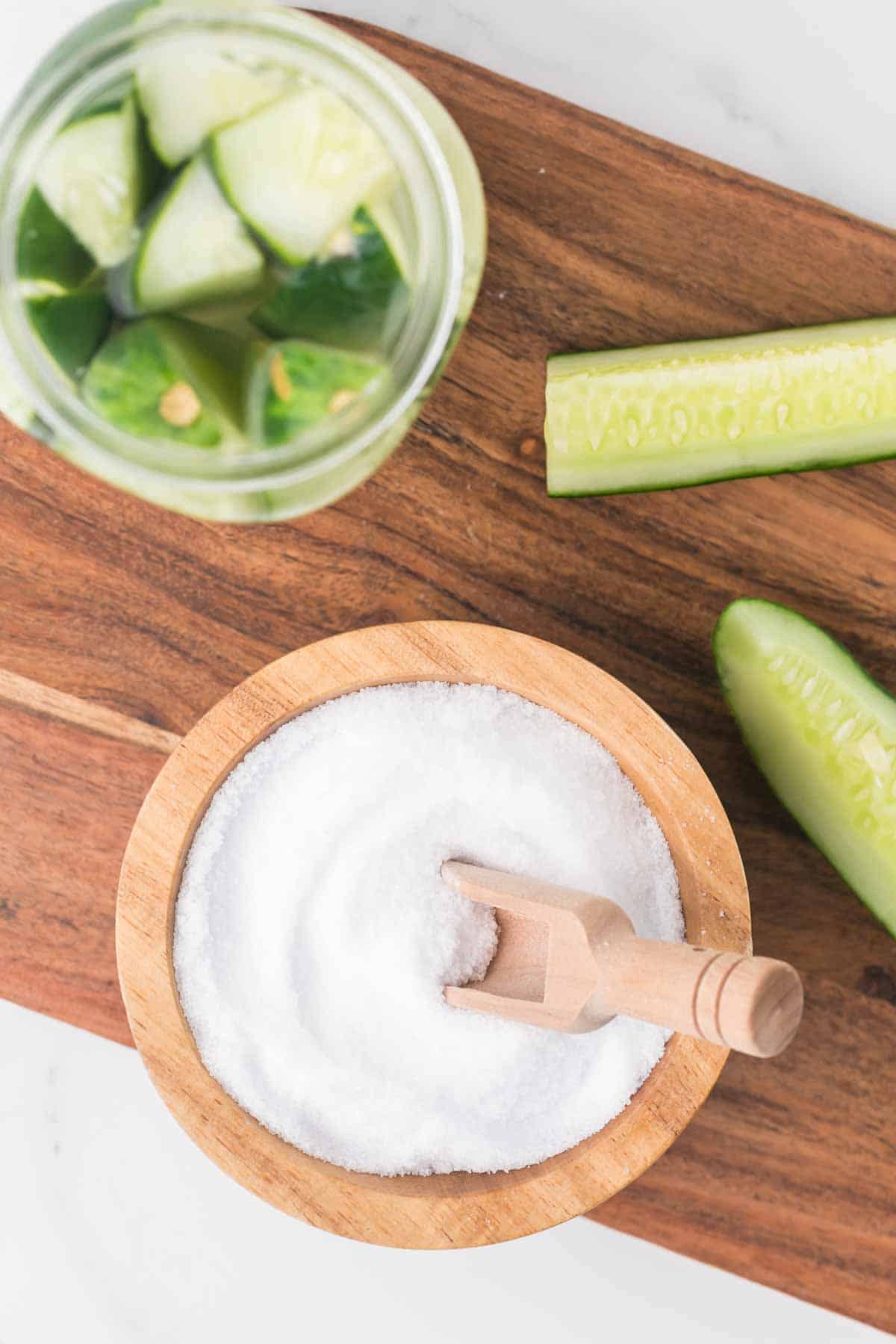
Recipe FAQs
Pickling salt is a fine-grained, pure salt without additives like iodine or anti-caking agents, which can cause discoloration or cloudiness in pickles.
The brand may not significantly affect the pickling process as long as the salt is pure and fine-grained. However, some brands might offer slightly different textures or purity levels.
Store it in a cool, dry place to prevent clumping. If it does clump, you can break it apart before use.
It’s not recommended to reuse pickling salt for making pickles as it may have absorbed impurities and lost its purity.
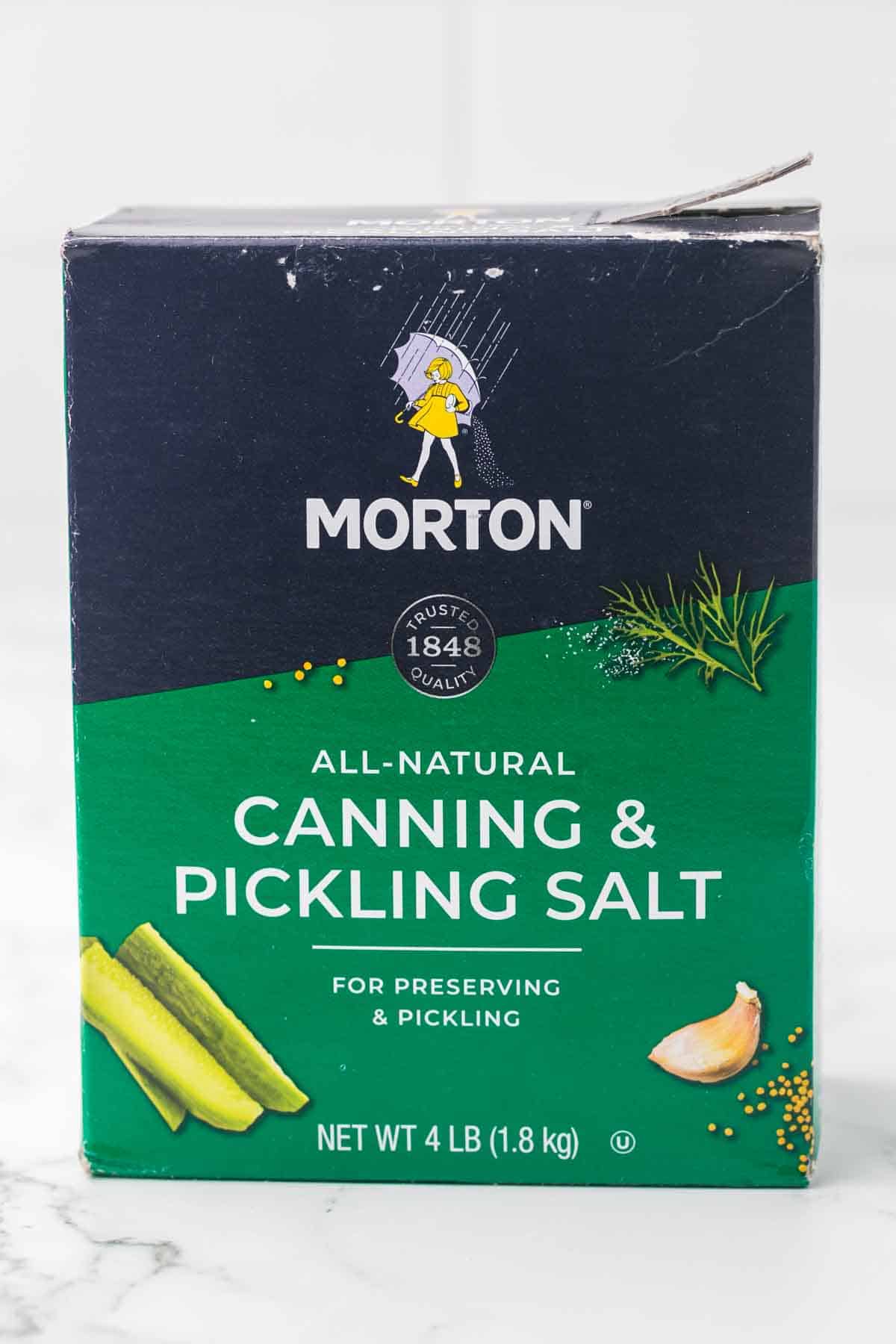
More Recipes To Consider
Healthy Snacks
Crock Pot or Slow Cooker Yogurt
From Scratch Recipes
Quick and Easy Refrigerator Pickled Banana Peppers
Cast Iron Skillet Recipes
How to Clean and Re-Season a Cast Iron Skillet
Did you make this recipe? Leave a ⭐️ review and share it on Instagram, Facebook, or Pinterest!
As you delve into the world of pickling, not all salts are created equal. For the crispest, most flavorful results, make pickling salt your go-to seasoning. Your taste buds will thank you as you savor the mouthwatering rewards of your pickling endeavors.

